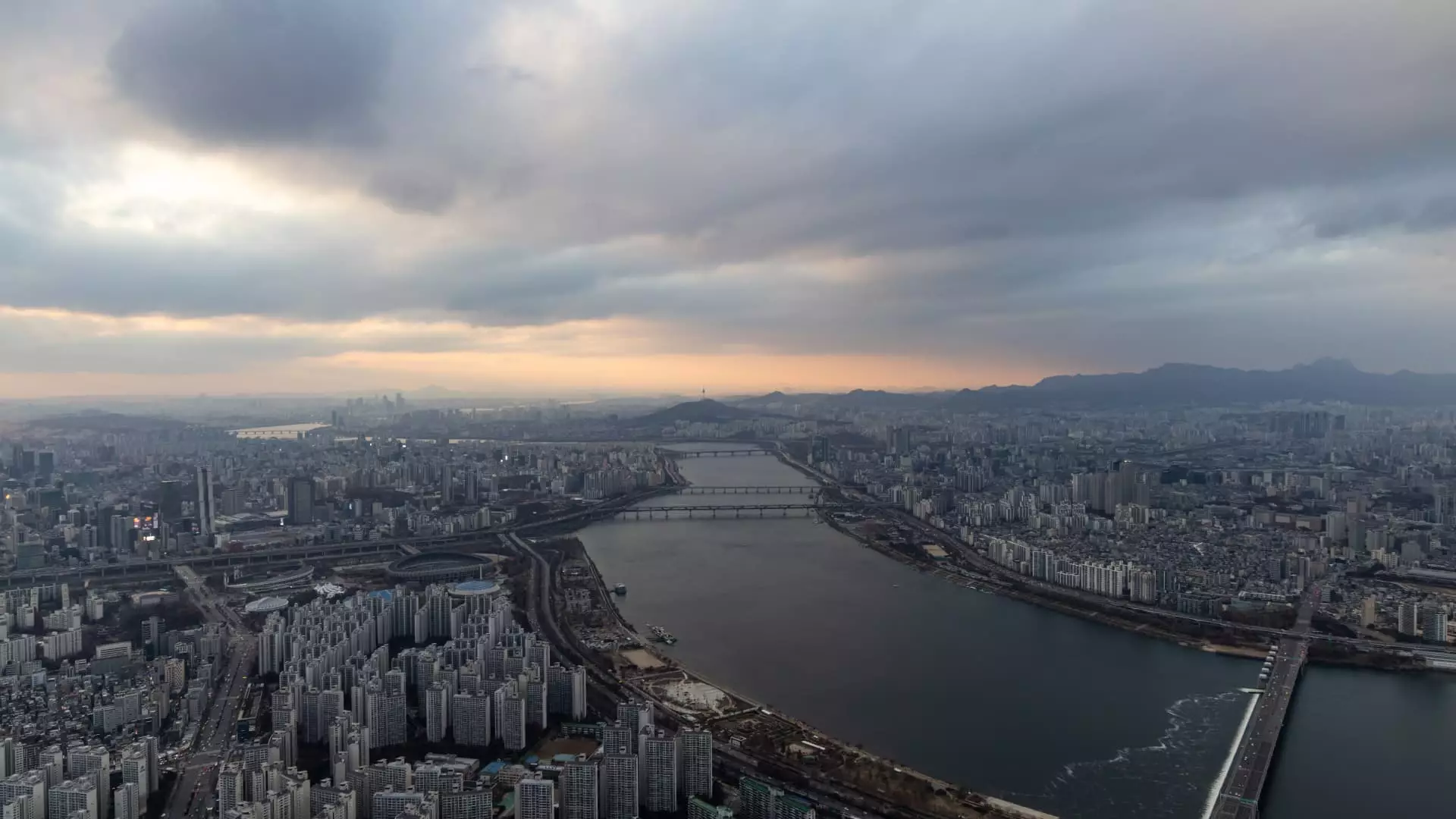The recent contraction of South Korea’s GDP by 0.1% year-on-year in the first quarter is not just a statistical anomaly; it serves as a stark warning signal about the fragility of the nation’s economic landscape. This decline, marking the first such downturn since late 2020, lays bare an underlying turbulence that threatens to undermine economic stability. The expected 0.1% growth—a modest aspiration in itself—was obliterated, revealing an economy grappling with significant structural issues.
Contributing heavily to this downturn is the staggering 12.4% contraction in the construction sector, an industry often lauded as a barometer of economic health. Such a massive drop is indicative of deeper problems within domestic investment sentiment and signals a retreat from robust infrastructure development. When construction—which significantly influences employment, economic growth, and consumer confidence—faces such a sharp decline, one cannot help but feel a sense of impending crisis. The idea that economic growth can be reliable in the face of such a setback is delusional.
Political Uncertainty and Its Consequences
Political instability is not merely a background theme but a central character in this unfolding economic drama. As South Koreans find themselves entangled in political turmoil—highlighted by the impeachment trials of prominent leaders like Yoon Suk Yeol and Han Duck-soo—the impact on economic confidence is palpable. The Constitutional Court’s inconsistent rulings contribute to an environment of uncertainty that repels both domestic and foreign investments. The upcoming elections scheduled for June 3 only serve to heighten this climate of unpredictability, as voters grapple with complex choices that could fundamentally alter the nation’s approach to economic policy and international relations.
In this context, the Bank of Korea’s decision to hold interest rates steady at 2.75% speaks volumes about the central bank’s cautious stance on monetary policy. With GDP growth forecasts being slashed below 1.5%, it is apparent that the Bank is navigating treacherous waters. There is an urgent need for decisive policy action, yet what South Korea appears to be getting is a half-hearted approach that only exacerbates the already dire economic conditions.
The Trade War Dilemma
Compounding South Korea’s internal struggles are external pressures from the global economy, especially the ongoing trade tensions with the United States. Despite temporary reprieves like the suspension of Trump’s “reciprocal tariffs,” critical sectors such as steel and automotive continue to face punitive tariffs that stifle export potential. This trade war not only threatens South Korea’s position as a leading exporter but also casts a shadow over the negotiations currently in the pipeline with the U.S. The outcome of these talks will hinge significantly on the political landscape post-elections, embedding the nation deeper into an unstable cycle.
The looming threat of further economic isolation becomes increasingly evident. As noted by analysts, governmental transitions can delay vital trade agreements, pushing South Korea’s negotiations into a precarious future. This reality starkly contrasts with the nation’s historical role as a key player in global trade, and if left unaddressed, South Korea might be further marginalized.
A Call for Forward-Thinking Policies
It is incumbent upon South Korea’s policymakers to recognize the need for a robust, forward-thinking economic strategy. The lament of falling GDP figures and the fragility of the construction sector are not just indices; they are cries for action. Stimulating domestic demand and fostering international trade relations is no longer simply advisable; it is imperative. The Bank of Korea’s expected commitment to monetary easing in the coming months is a welcome sign, but one can argue that merely tweaking interest rates can no longer serve as the panacea for a suffering economy.
We must advocate for a more ambitious fiscal stimulus that goes beyond token gestures. It’s about time South Korea embraces an economic paradigm shift, focusing on sustainable and equitable growth, enhanced infrastructure investments, and improved trade relations. Only through proactive governance can the nation not only avert a potential economic catastrophe but also rebuild its stature as a formidable player on the global stage. An urgent call for leadership and vision resounds as the nation prepares to chart its course in these uncertain times.

Leave a Reply